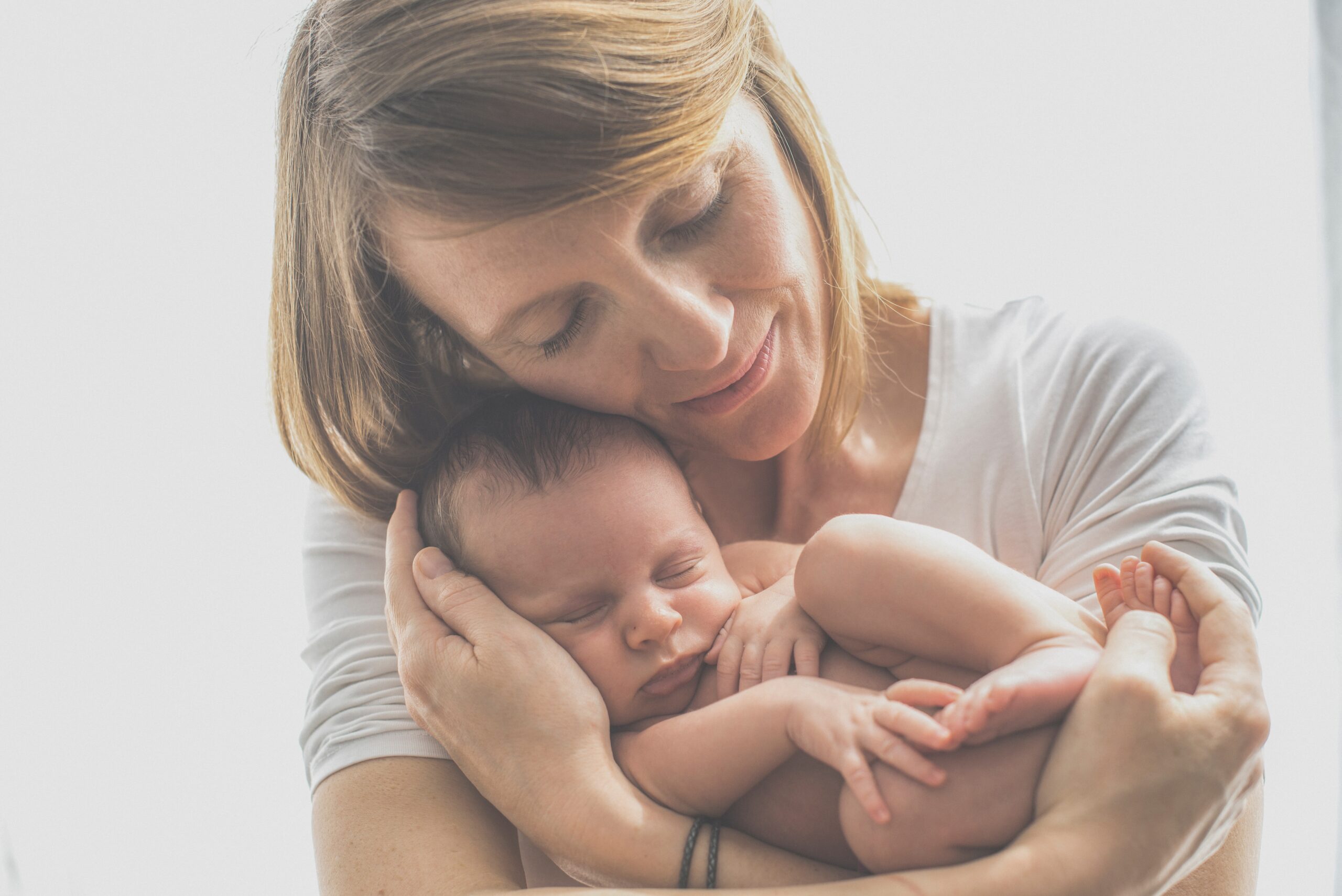Call to action: make 2024 the EU year for Women’s Mental Health
09.10.23
In June this year, the European Union (EU) Commission announced a new high-priority initiative to address the mental health of all Europeans.

It focuses on mental health promotion, prevention, and early intervention, as well as the recognition that mental health is about more than just health (i.e., to also address the various social determinants). This came in response to new reports that say mental health problems now affect an estimated 84 million people (1 in 6) in the EU, and that the societal and financial implications of this for our societies are great, amassing to about 600 billion euros.[i]
While Make Mothers Matter (MMM) welcomes this progress, we call on the EU Commission to take it a step further and specifically include how this relates to women and mothers – society’s primary carers and key levers for change in our communities. Women’s health, both physical and mental, often present differently than in men and as such, need a more tailored, patient-centered approach. That being said, women’s health is, in general, very under-researched in both the medical and public health fields, as women have historically been excluded as study participants. This is especially true of women who bear the additional weight of other forms of inequity, based on, for example, race/ethnicity or socioeconomic status.[ii] What we do know is that women’s mental health, as important as it is on its own, also lays the foundation for, if they choose to become a mother – birth outcomes, healthy child development, positive family dynamics, and ultimately, happier and healthier communities for us all. In fact, UNICEF has said that the first 1,000 days of a baby’s life is the critical window for giving them the greatest chance to both survive and thrive.[iii] And those 1,000 days start even at the beginning of pregnancy and continue to the baby’s second birthday. This period is a unique opportunity, especially for intervention, where the foundations for optimum health and development across the lifespan are established.
Unfortunately, even in the EU, maternal mental health is largely neglected in child health programmes, and for no clear reason.
The importance of working to change this, and why we should all care and be inclined to act, cannot be understated.
Quick facts:
· 1 in 5 women has a diagnosed mental health condition, compared to 1 in 8 men[iv]
· 47% of women are considered at high risk of developing symptoms of a mental health condition[v]; this increases significantly during and after pregnancy
· Women often report putting others’ needs before theirs, including being a primary or sole caregiver, as their number one care responsibility[vi]
· While maternal mental health can affect women of all backgrounds, those who are of racial-ethnic minorities or have low socioeconomic status are at greater risk; they are also less likely to have access to quality care[vii]
· Stigma was the most reported barrier to women’s health-seeking process, including that they would be seen as a “bad mother”[viii]
Maternal mental health is usually defined as the mental health of a woman during pregnancy, childbirth, and the first year after delivery. While having a baby is a big life-changing event and it is normal to at times feel overwhelmed and anxious, more chronic mental health conditions, sometimes requiring intervention, are not openly talked about enough. As a result, many new mothers report feeling like there is little support to be had and that the load is too heavy to carry by themselves.[ix] According to the World Health Organization, 10%  of pregnant women globally and 13% of women who have just given birth will experience poor mental health, most commonly a mood disorder such as post-partum depression.[x] These figures are even higher in developing countries.[xi] Unfortunately, a great majority of cases of mothers struggling are thought to go unreported and/or untreated.[xii] Again, stigma was the most commonly reported barrier to women’s health-seeking process.[xiii] The negative effects of this are many, for both mother and child . These can have long-lasting effects and cause a multitude of problems, such as a mother’s ability to parent her child(ren) or even to take care of herself. Infants are highly sensitive to their environment and the mother-infant attachment, and so those who are raised by a struggling mother are also at greater risk of mental health conditions as they get older; it becomes cyclical, getting passed down from generation to generation.[xiv] They are also more vulnerable to physical disability and disease, pretty much throughout the rest of their lives.[xv] Given this, we desperately need to find ways to better support mothers through the (normal) ups and downs of pregnancy and parenting, thereby improving children’s health too, and that starts with recognition of the problem and holding space for discussions. MMM joins other women’s groups in advocating on behalf of this and drawing attention to its importance.
of pregnant women globally and 13% of women who have just given birth will experience poor mental health, most commonly a mood disorder such as post-partum depression.[x] These figures are even higher in developing countries.[xi] Unfortunately, a great majority of cases of mothers struggling are thought to go unreported and/or untreated.[xii] Again, stigma was the most commonly reported barrier to women’s health-seeking process.[xiii] The negative effects of this are many, for both mother and child . These can have long-lasting effects and cause a multitude of problems, such as a mother’s ability to parent her child(ren) or even to take care of herself. Infants are highly sensitive to their environment and the mother-infant attachment, and so those who are raised by a struggling mother are also at greater risk of mental health conditions as they get older; it becomes cyclical, getting passed down from generation to generation.[xiv] They are also more vulnerable to physical disability and disease, pretty much throughout the rest of their lives.[xv] Given this, we desperately need to find ways to better support mothers through the (normal) ups and downs of pregnancy and parenting, thereby improving children’s health too, and that starts with recognition of the problem and holding space for discussions. MMM joins other women’s groups in advocating on behalf of this and drawing attention to its importance.
Recommendations
Based on existing research, a more proactive, inclusive, life-course perspective needs to be taken, caring for a woman during all different chapters in her life and making dedicated care more accessible and of greater quality. Even so, each woman will require or want different types of care, and these need to be made freely available, too: she needs to be empowered to make choices that are best for her and to be supported in those decisions. This also includes strengthening the mental health component in the training of all care providers, and their gender-specific and cultural competencies.
The EU Commission and governing bodies of the Member States could be of a great help in setting the policy agenda to make maternal mental health, and women’s health and wellbeing more generally, a high priority. This may involve holding space to hear from mothers about their experiences, something we at MMM pride ourselves on advocating for often.
We therefore call on the EU to make 2024, the year of women’s mental health.
Policy makers can then use this to (1) set realistic targets for change, (2) allocate enough funding, and (3) develop effective monitoring programs. What is most important is listening to those affected and learning how they would like to be supported. The EU Commission and the Member States with support from organizations like ours, can then work to provide the necessary resources and an action plan going forward.
Maternal mental health matters. What we are currently doing is simply not enough nor acceptable. We must all work together as powerful advocates: happier and healthier mothers mean happier and healthier communities for us all.
By Emma Holloway, maternal and child health policy intern at MMM
References
[i] European Commission. (2022). Mental Health. https://health.ec.europa.eu/non-communicable-diseases/mental-health_en
[ii] Pilav, S., De Backer, K., Easter, A., Silverio, S., Sundaresh, S., Roberts, S., & Howard, L. (2022). A qualitative study of minority ethnic women’s experiences of access to and engagement with perinatal mental health care. BMC Pregnancy and Childbirth, 22(421). https://doi.org/10.1186/s12884-022-04698-9
[iii] UNICEF. (2017). FIRST 1000 DAYS: THE CRITICAL WINDOW TO ENSURE THAT CHILDREN SURVIVE AND THRIVE. https://www.unicef.org/southafrica/media/551/file/ZAF-First-1000-days-brief-2017.pdf
[iv] Health Assured. (2023). Women’s mental health: the statistics. https://www.healthassured.org/blog/women-s-mental-health-the-statistics/
[v] Homewood Health (n.d.). Women’s Mental Health. Retrieved September 21, 2023, from https://homewoodhealth.com/corporate/blog/womens-mental-health#:~:text=Some%20enlightening%20facts%20about%20women%27s,the%20rate%20of%20young%20men.
[vi] Cleal, O. (2023). Women tend to sacrifice their mental health for others. Here’s what the Liptember Foundation is doing about it. Women’s Agenda. https://womensagenda.com.au/latest/women-tend-to-sacrifice-their-mental-health-for-others-heres-what-the-liptember-foundation-is-doing-about-it/
[vii] Pilav, S., De Backer, K., Easter, A., Silverio, S., Sundaresh, S., Roberts, S., & Howard, L. (2022). A qualitative study of minority ethnic women’s experiences of access to and engagement with perinatal mental health care. BMC Pregnancy and Childbirth, 22(421). https://doi.org/10.1186/s12884-022-04698-9
[viii] Mental Health Technology Transfer Center. (n.d.). Perinatal Mental Health. Retrieved September 21, 2023, from https://mhttcnetwork.org/centers/global-mhttc/perinatal-mental-health
[ix] Cleal, O. (2023). Women tend to sacrifice their mental health for others. Here’s what the Liptember Foundation is doing about it. Women’s Agenda. https://womensagenda.com.au/latest/women-tend-to-sacrifice-their-mental-health-for-others-heres-what-the-liptember-foundation-is-doing-about-it/
[x] World Health Organization. (n.d.). Maternal mental health. Retrieved September 21, 2023, from https://www.who.int/teams/mental-health-and-substance-use/promotion-prevention/maternal-mental-health
[xi] Ibid.
[xii] Mental Health Technology Transfer Center. (n.d.). Perinatal Mental Health. Retrieved September 21, 2023, from https://mhttcnetwork.org/centers/global-mhttc/perinatal-mental-health
[xiii] Ibid.
[xiv] Canadian Paediatric Society. (2004). Maternal depression and child development. Paediatric Child Health, 9(8), 575-583. https://doi.org/10.1093/pch/9.8.575
[xv] Ibid
Breaking the Cycle: Gender Equality as a Path to Better Mental Health
18.03.25
The Council of the European Union has taken a decisive step in recognising the vital connection between gender equality and mental health.
Europe Must Listen to Mothers: Our landmark report heads to the European Parliament
28.08.25
On 22 September 2025, the voices of mothers will take centre stage in Brussels. For the first time, Make Mothers Matter (MMM) will present its State of Motherhood in Europe
Belgian Mothers Face Alarming Rates of Burnout and Perinatal Depression, New EU Survey Finds
03.07.25
Belgian mothers are facing a mental health crisis. According to the State of Motherhood in Europe 2024 survey by Make Mothers Matter (MMM) and Kantar, Belgium reports the highest rates








